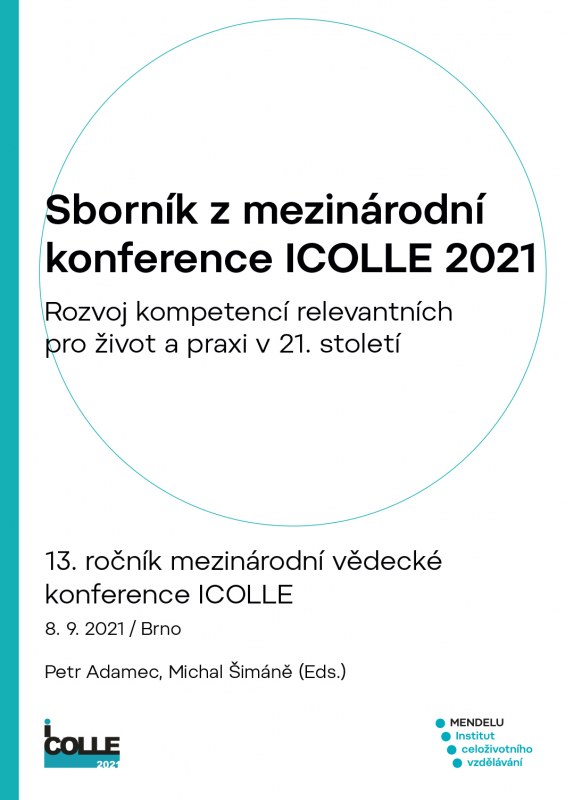
DOI: 10.11118/978-80-7509-832-0-0212
SELF-EFFICACY A JEJÍ POSTAVENÍ VE STRUKTUŘE PROFESNÍCH A OSOBNOSTNÍCH KOMPETENCÍ MODERNÍHO UČITELE
- Markéta Švamberk Šauerová
The starting point of the paper are the reflections of Zygmunt Bauman, an expert on the so-called liquid modern world - characterized by a fast flow of information and constant events flow, in which certainty and lasting ties begin to lack. With the rapid flow of life, rapidly changing conditions, especially in the last months of the pandemic situation, which places very high demands on teachers to change existing pedagogical approaches and didactic methods, many teachers lose „confidence“, motivation and energy. Closely related to all this is the need to develop self-efficacy – the awareness of self-efficacy, the awareness that I can adapt to change. In connection with new social trends, it is appropriate to consider the position of self-efficacy in the competence structure of the modern teachers and pay attention to their development. In this context, the paper focuses mainly on the design of psychological techniques to support teachers‘ self-efficacy and their inclusion in the field of personal development of teachers both in higher education teacher training and in lifelong learning. Self-efficacy techniques also work to effectively prevent of the burnout. Methods of healthy reflection and self-reflection have a crucial place in the development of self-efficacy - eg the use of swot analysis, self-reflexive inventory, self-reflection of experiences, self-reflexive diary and methods of personal development based on coaching.
Keywords: personal developtment, comeptence structure, self-efficacy, lifelong learning
pages: 212-220, online: 2022
References
- Adamec, P. (2021). Okolnosti motivace ke studiu a práci učitele v odborném vzdělávání. In: Vybrané kapitoly soudobých témat odborného vzdělávání. Praha: Powerprint.
- Adamec, P. (2019). Vztah a motivace učitelů odborných předmětů k dalšímu vzdělávání. Pedagogika: časopis pro vědy o vzdělávání a výchově.
 Go to original source...
Go to original source... - Arendtová, H. (2013). Původ totalitarismu I-III. Praha: OIKOYMENH.
- Bauman, Z. (2002). Tekutá modernita. Praha: Mladá fronta.
- Bauman, Z., Lyon, D. (2013). Tekutý dohled. Olomouc: Broken Books.
- Csikszentmihalyi, M.(1996). O štěstí a smyslu života. Nakladatelství Lidové noviny. Dijář. https://www.karierovydijar.cz/obsah-dijare
- Hošek, V. (1999). Psychologie odolnosti. Praha: Karolinum.
- Kabat-Zinn, J. (1990). Full catastrophe living: using the wisdom of your body and mind to face stress, pain, and illness: the program of the Stress Reduction Clinic at the University of Massachusetts Medical Center. New York: Delta.
- Spilková, V. (2001). Profesní standard a klíčové kompetence učitele primární školy. In: Učitelé jako profesní skupina, jejich vzdělávání a podpůrný systém. Praha: PedF UK.
- Starý, K. a kol. (2008). Pedagogika ve škole.Praha: Portál.
- Švamberk Šauerová, M. (2018) Techniky osobnostního rozvoje a duševní hygieny učitele. Praha: Grada.
- Vadíková, K. (2019). Dialogická osoba a situácia. Guardiniovská edukačná etika a situacionizmus. Trnava: TU.


